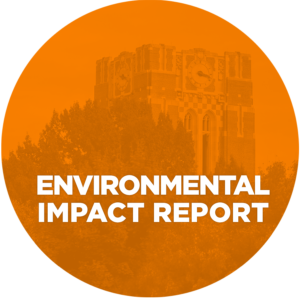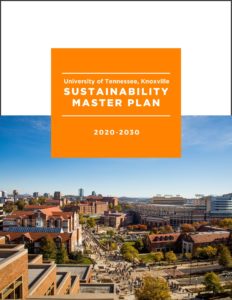Being the land grant institution of Tennessee, the environmental footprint of the University makes a large impact. By investing in new technologies, looking for efficiencies, and reducing waste, we are living up to the mission of providing a better life for Tennesseans.
Academics
The University of Tennessee recognizes sustainability as a rapidly growing interdisciplinary field with practical applications across all sectors of the global workforce and offers many ways to learn more about sustainability through academics.
Green Infrastructure
Green infrastructure is a new approach to combat traditional building designs. Though mostly focused on stormwater management, green infrastructure provides numerous benefits to communities and mitigates problems commonly found in urbanized areas.
Energy
Being the largest university in the state of Tennessee, it’s no surprise that our energy footprint can be rather large. For our campus to reach its sustainability goals, we must take responsibility for how our energy is generated and how we utilize it.
Food
As part of Make Orange Green, UT’s campus-wide sustainability initiative, Vol Dining works with our office, other campus units, and dining vendors to continually develop and implement sustainable solutions for our campus.
Transportation
Transportation accounts for the second largest greenhouse gas emission category, behind energy. The University of Tennessee, Knoxville has taken many steps to provide alternative transportation to and around campus.
Zero Waste
The University of Tennessee, Knoxville has committed to divert 50% of its waste from the landfill by 2030, as announced by Chancellor Donde Plowman in January 2020. Reaching this goal will be our first step toward becoming a Zero Waste institution.
Environmental Impact Reports
View the previous Environmental Impact Report from 2018-19, which shows the ways in which UT has been steadily reducing our environmental impact while also saving the campus thousands of dollars every year. The Environmental Impact Report will no longer be published in a pdf format but instead all information will be available on the impact section of this website.
Sustainability Master Plan
The Sustainability Master Plan addresses the greenhouse gas reductions needed to reach our carbon neutrality date of 2061 set forth in the 2011 Climate Action Plan, as well as more holistic aspects of sustainability inspired by the UN’s Sustainable Development Goals.







